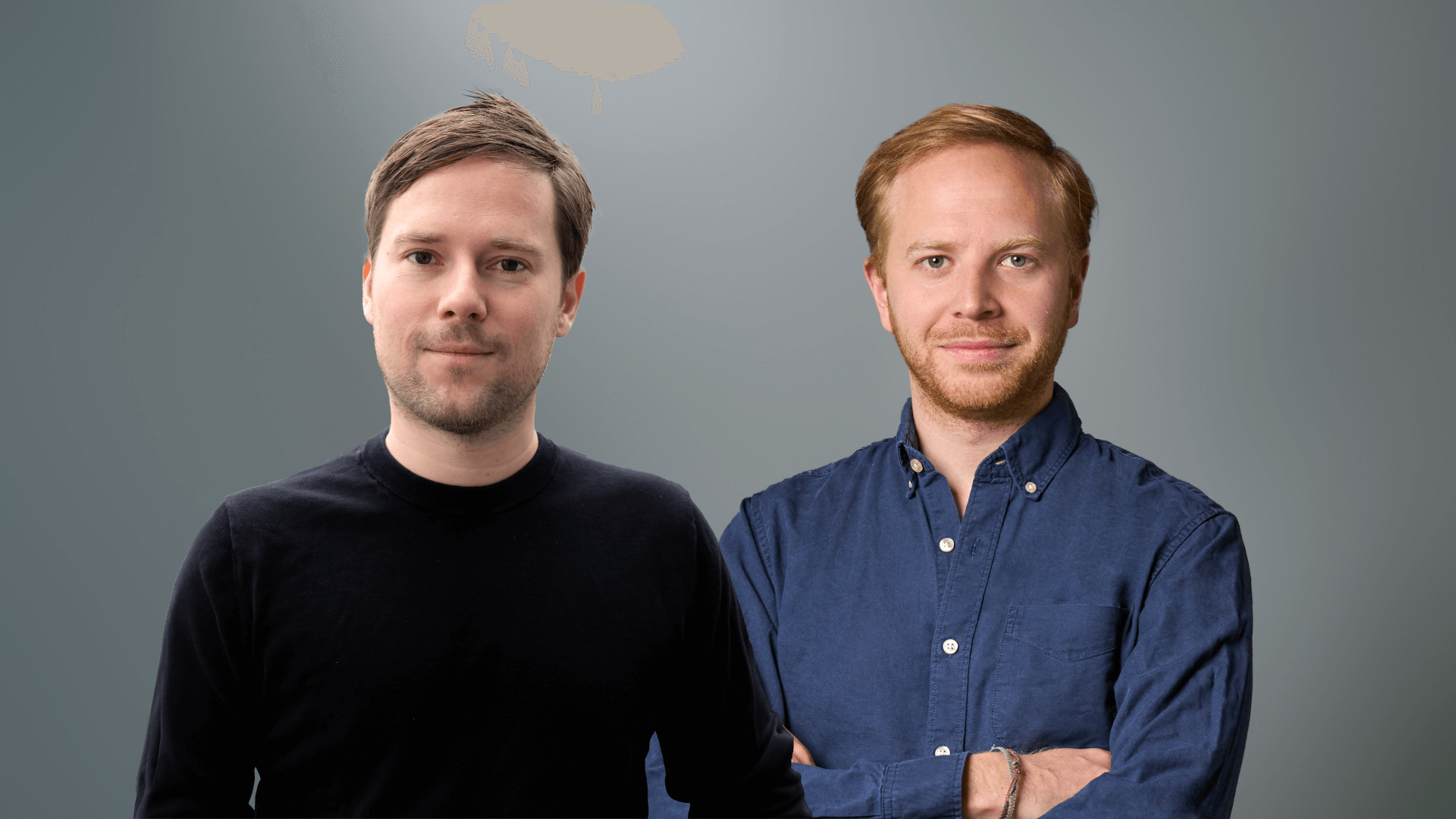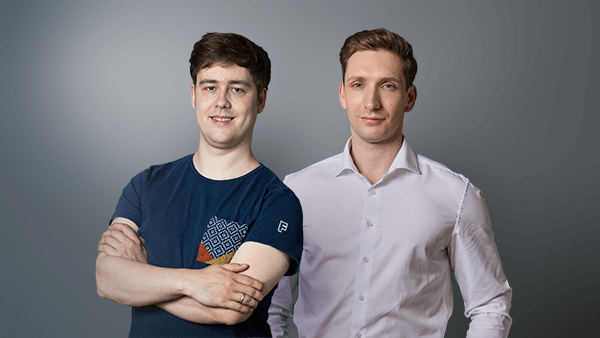Pivoting to become the market leader
In this interview, Ralf Rottmann, Managing Director and founder of grandcentrix, and HTGF Partner Markus Kreßmann talk about how grandcentrix made a radical departure from its original business idea to become a leading IoT solutions provider – and why HTGF was the only conceivable investor for the team of founders.
Markus, HTGF was the sole investor in grandcentrix. The exit took place just under a year ago, in November 2019, when Vodafone completed a takeover of the company, which has since gone on to establish itself as the leading IoT solutions provider in Germany. Is this the kind of success story that investors dream of?
Markus: Absolutely. Not just on a business level, but also a personal one. Ralf and I have become great friends. We’ve gone through crises and challenges together, getting to know each other really well in the process.
Ralf: I couldn’t agree more. And I can say right from the off that if we’d have had a different investor to High-Tech Gründerfonds, things would have gone differently. And we, the founders, would have probably suffered at least one burnout along the way. But our partnership was luckily a really good fit and HTGF was a real tower of strength for us.
How did things get started?
Ralf: grandcentrix originally consisted of myself and three other founders. When we came up with our business idea, the smartphone had just become programmable. And although it might be hard to believe now, back then it was unclear whether the smartphone would establish itself on the market. Only 30,000 smartphones had been sold in Germany at the time and surfing the internet on your phone was really expensive. Nevertheless, we had faith in its development and took a really strategic approach to the market.
What was your idea?
Ralf: We wanted to develop a platform that would enable larger SMEs in particular to take their solutions and business processes to mobile internet in the form of apps. In short, we wanted to develop an SaaS platform. We came up with a business plan and presented it to investors.
Markus: Which luckily included us, since you spoke to a lot of investors. We were able to win out in the end. We really made an effort to make an impression, as the team of founders was more than promising, very experienced and the pitch deck was extremely professional. It would not be an exaggeration to say that we – the investors – pitched to you. We then closed a financing deal in March 2010.
Sounds like you got off to a good start. At what point did the crises you mentioned earlier start looming?
Ralf: In terms of business, things were running extremely well from the offset. We secured major, high-profile clients really quickly, particularly from the media and publishing industries. But these contracts were all about IT project business. So we ended up slipping into the service sector.
Although you actually wanted to develop an SaaS platform?
Ralf: Exactly. But instead of pursuing this development, we ended up taking on an increasing number of orders, hiring more developers and sales were rising. At the same time, we were acutely aware of the fact that this was kind of taking us in the wrong direction.
How did HTGF react to this change of course so soon after providing the financing?
Markus: Both we and the team at grandcentrix were, of course, delighted by the high sales in the first two years. But the costs were also increasing enormously, being spent on more personnel, more office space, etc. And none of this had been part of the business plan in which we’d invested. So we spoke to the founders, discussed a great deal and continuously challenged this development.
Ralf: It was a difficult time. We didn’t want to be a service provider, and IT project business can be extremely tedious. At the same time, an increasing number of start-ups had been set up in the USA with the same original idea as us and who were working with whole different levels of funding, as is typical for the market there. Internally, there was a great deal of pressure. But HTGF luckily gave us the time we needed. I dread to think what would have happened if we’d have had a VC that had pushed us to pursue Series A funding after just one month.
Where did things go from there?
Ralf: Myself and Martin Willow, one of our co-founders, took the decision in 2015 to make the pivot official and exclusively concentrate on the service sector. We also wanted to solely focus on industry clients. The decision was a tough one and led to disagreements between us founders. Things went so far that a long-term friend and co-founder ended up dropping out in what was a very painful process and we haven’t spoken since.
How did you react to this decision at HTGF? By this point it had ultimately become clear that you wouldn’t be getting the product you’d originally invested in.
Markus: That’s right. But this wasn’t a decision that was taken overnight; it was the result of years of discussion. We could see that the founders had tried everything and made sacrifices. And they again presented a very analytical concept for the pivot.
What did it entail?
Markus: The term “IoT” wasn’t in use back then, but we were in the early stages of such developments. You could see that an increasing number of industry clients would have to make use of networking technologies and the products were becoming more intelligent. And grandcentrix had the knowledge and experience to support companies across the entire value chain – from the development of electronics to a secure cloud service and their display on smart devices. This was what convinced us.
And did the plan work out right away?
Ralf: As soon as we reached this decision internally, we continued to grow very quickly and profitably. We were able to secure key corporations and industrial SMEs as clients within a short space of time. And with the support of HTGF, we were then able to set up a very good management team. We really started to have fun from that point onwards.
So how did it come to the exit?
Ralf: We weren’t actively looking for a buyer at the time, as things were working really well for us. But we were always open to the idea and had already spoken to Markus about it. Our first contact with Vodafone – which was on the lookout for an IoT service provider – was also set up by HTGF, who guided and supported us through the entire process.
And you’re still in contact one year later?
Ralf: Of course. We recently met up with Markus again because we want to become more involved in the ideas of founders as an angel investor. Ultimately, we know just how important it is to have someone believe in you.
Markus: And that’s what it’s all about for us: bringing successful founders and up-and-comers together so that they can expand their knowledge. This is the key to a successful and sustainable start-up ecosystem.
Thank you for your time!


